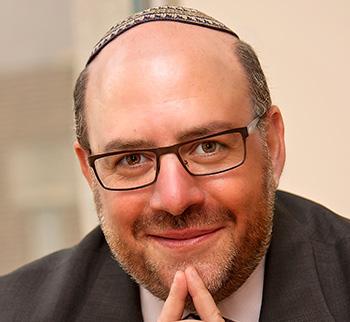NEW YORK — The United Synagogue of Conservative Judaism is selling its New York office.
The organization announced Jan. 21 that it signed a contract last month to sell its two-floor condo in midtown Manhattan for $15.9 million. Proceeds from the sale of the Second Avenue property will go toward paying down its debt, renting new office space and establishing a foundation to fund ongoing programs, United Synagogue said.
United Synagogue is the 102-year-old congregational arm of the Conservative movement. It has taken a financial hit in recent years as Conservative synagogues have shut down, merged with other Conservative or Reform congregations, or pulled out of the congregational group for practical, financial or ideological reasons. The group now has about 600 member synagogues, down from 630 synagogues in 2013 and 675 in 2009. In 1985, it had about 850 synagogues.
In 2011 and 2012, United Synagogue ran a cumulative budget deficit of $6 million, and for the last two fiscal years the cumulative deficit has amounted to about $2.8 million. This year’s projected budget deficit is $600,000, a spokeswoman told JTA.
In 2013, United Synagogue said it was shutting down Koach, the movement’s college outreach organization. And not long ago the Conservative movement’s network of Solomon Schechter schools, which has seen its own ranks shrink over the last decade and a half from 63 schools to about 40, dropped its affiliation with United Synagogue.
In a statement, the United Synagogue described the sale of its office as part of a strategy adopted three years ago to cut expenses, expand philanthropic support and focus on core functions to meet the needs of member congregations.
Rabbi Steven Wernick, United Synagogue’s CEO, said owning real estate is not essential to the organization’s core mission.
“We’ll invest these resources instead in people, in innovation, and in our kehillot, our sacred communities, with whom we are reimagining Judaism for the 21st century,” Wernick said in a statement.
A United Synagogue spokesperson, Andrea Glick, said the organization was planning to rent office space in lower Manhattan. That would put it even farther from the flagship institution of the movement, the Jewish Theological Seminary of America, which is located in upper Manhattan, near Harlem.
Asked whether United Synagogue considered moving its staff of about 50 to JTS, Glick said only that United Synagogue explored many alternatives, including the Interfaith Center of New York and sharing space with other Jewish organizations.
“Either space was not available or did not meet our needs,” Glick said.
Under New York state law, the office sale must be approved by a vote of member congregations; that will take place in February or March, United Synagogue said. If approved, the move likely would take place in August or September.
Board members plan to spend a significant portion of the proceeds from the office’s sale to create a “Fund for the Future,” that will “support USCJ’s congregational programs, seed innovative initiatives, and provide capital reserves,” the organization’s statement said.
